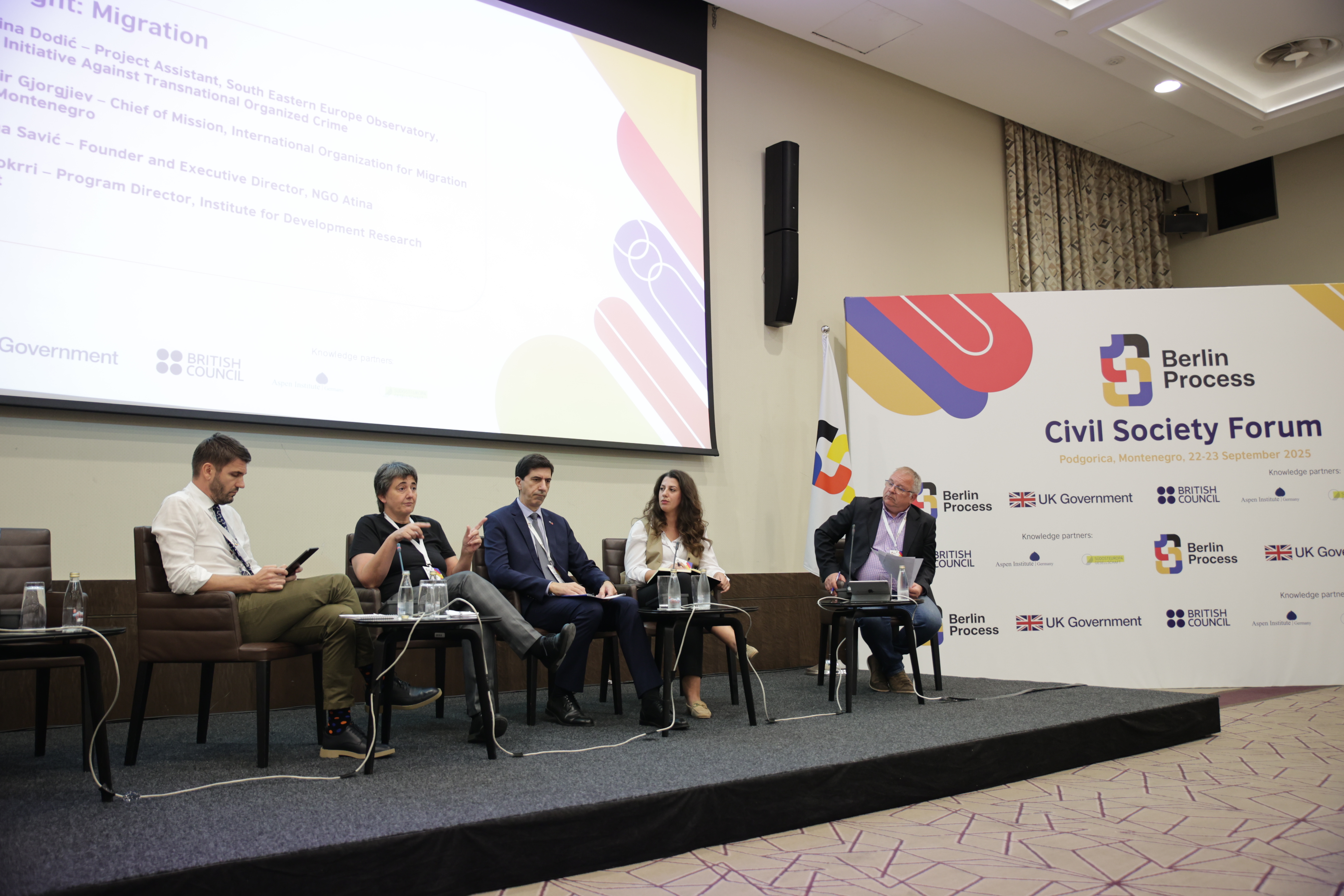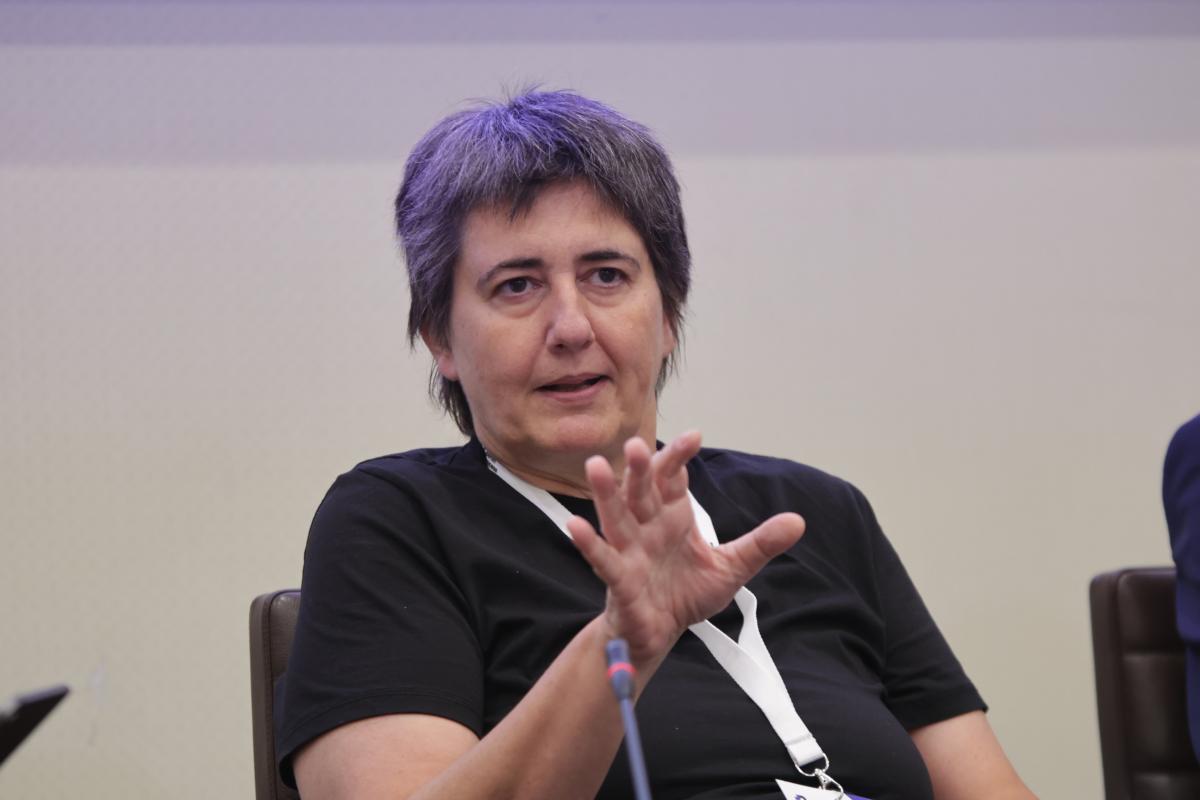Hotline: +381 61 63 84 071
Protection must be rooted in dignity

Protection must be rooted in dignity
Atina’s director, Marijana Savić speaks at the Civil society forum 2025 in Podgorica: “Protection must be rooted in dignity”
Photos: CSF
Podgorica, September 22–23, 2025
At the Civil Society Forum 2025, held in Podgorica as part of the Berlin Process, Marijana Savić, founder and director of NGO Atina, joined civil society leaders from across the Western Balkans to discuss migration, human trafficking, and the urgent need for stronger regional cooperation to protect victims of exploitation and violence.
Speaking at the session “Spotlight: Migration – On the Move,” Savić shared powerful insights from Atina’s long-term work with survivors of trafficking, forced labor, and gender-based violence. She warned that gaps in legal protection and the absence of coordinated regional mechanisms continue to expose women and migrants to severe risks.
“Maybe you saw this case in the media,” Savić began, referring to the story of a woman from Bosnia who survived brutal violence in Serbia but was punished for not having the proper papers. “Instead of being protected as a victim, she was treated as an offender. That is unacceptable. The only reason she is safe now is that ordinary citizens and informal cooperation between NGOs and prosecutors made it possible. That is not how protection should work.”
Savić underscored that trafficking in the Western Balkans today is not only international but intensely regional, affecting women moving between Bosnia and Herzegovina, Kosovo, Albania, and Montenegro in search of safety or employment. “Migration in our region is regional — and our systems are failing these women equally,” she said.

She called for institutionalizing cooperation through the Berlin Process, emphasizing that protection mechanisms must move beyond informal coordination and become formal, structured, and sustainable. Drawing on Atina’s experience, she highlighted four essential priorities:
- Institutionalized and cross-border referral mechanisms ensure protection regardless of nationality or legal status.
- Communities of practice that enable professionals across the region to share real-time information and improve identification of trafficking and labor exploitation cases.
- Economic empowerment and social inclusion through sustainable employment and social entrepreneurship, which Savić described as “prevention, dignity, and the only sustainable path to reintegration.”
- Survivor-led advocacy, where women with lived experience actively shape policies and protection systems.
“If we don’t push for this,” Savić concluded, “women will continue to be punished for not having papers instead of being protected for being victims. The Berlin Process is our chance to make protection equal, sustainable, and rooted in dignity.”
The Civil Society Forum 2025 gathered organizations from across the region to develop recommendations on six thematic priorities: Common Regional Market and Growth, Gender and Diversity, Reconciliation and Dealing with the Past, Environment and Decarbonization, Security, and Good Governance, reinforcing the role of civil society as a driver of regional cooperation and democratic reform.
Pictures from the event: https://events.mediasolution.me/civilsocietyforum/












 FACEBOOK
FACEBOOK TWITTER
TWITTER YOUTUBE
YOUTUBE